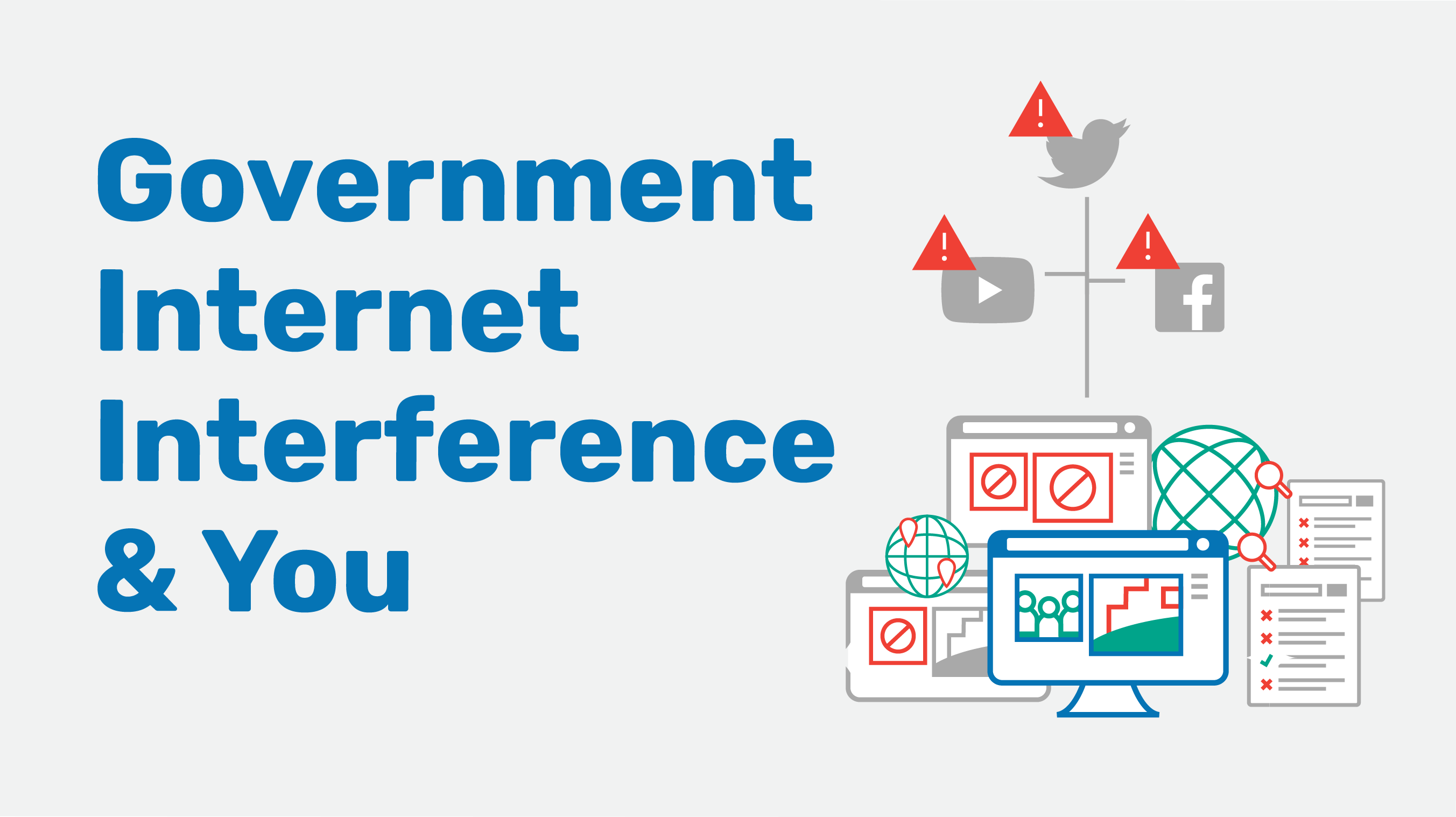
Sometimes, the internet can feel like the wild west. Yet readers of this blog and international recruitment pros know: things are not as free-wheeling as they may appear. Around the world, government restrictions on internet access abound.
You may already be familiar with specific platforms that are not accessible abroad – Google SEO efforts won’t help you reach students in China, prospective Indian students probably aren’t seeing your Tweets, and Iranian students can’t freely access Facebook, for example.
But are you keeping your eye on government internet interference in your target markets more generally? And do you have a plan for how to respond if channels that were once your online go-to’s cease to be available to the students who you most want to reach?
Read on to see how you can be aware and protect yourself against potential changes...
What do we mean by “internet interference”?
Over the past decade, global governments have interfered with free access to the internet in four main ways: Blocking specific applications (for example, China’s well-known Facebook ban), shutting down categories of service (for example, all types of instant messaging), targeting mobile access, and disrupting online access in general.
Here are a few examples:
- In 2015, Pakistan shut down mobile access for two days because of fear of civil unrest.
- In 2016, the Indian state of Gujarat shut down all online social media for the morning of an accounting exam as an anti-cheating measure.
- In 2017, the government of Cameroon shut down all internet access to its English-speaking regions for 93 days.
This interference happens for a variety of stated and unstated reasons—often political—and is often met with alarm. In 2016, the UN passed a resolution condemning such shutdowns. The KeepItOn campaign is fighting to preserve free access. And many Americans worry about changes to net neutrality, a related hotbed issue. Government interference is on the rise.
So, what does this mean for you?
When governments block particular sites in a predictable manner, we might not love that—but we can at least adjust our online marketing strategy accordingly. Short-lived bans are workable, too. Sudden, long-term, or expansive internet interference can be trickier to respond to. And prompt concerns about losing current followers.
Online advertising, both paid and organic, is an invaluable part of your recruitment toolkit. But particularly in politically volatile markets, remember to:
- Stay informed. Whether internet disruption is short or long-term, narrow or wide-reaching, you want to know about it. Set up google news alerts. Talk to your recruitment agents for on the-ground-intel. Ask your international students already on campus to alert you; they are sure to know very quickly when things like this happen back home.
Changes in internet access are important to know about both because they affect the reach of your online outreach (obviously) and because they often indicate political upheaval that will affect your recruitment efforts more broadly.
- Know the trends. If the government of your target market has previously limited access to mobile, messaging, or specific platforms, know what has happened in the past. Even if the interference is not currently in effect, it’s good context to have before you move on to our final piece of advice…
- DIVERSIFY! Don’t put all your eggs in one online basket. Use a mix of platforms, and don’t overlook the importance of on-the-ground relationships to supplement your digital efforts. This will mean that even if one mode of reaching students goes away in the short or long-term, you still have ways to reach your prospective students.
Need some help navigating all of this? We know just the thing. Intead’s Digital Audit service is a great first step in identifying how well you could weather changes to internet access in your most important international markets.

